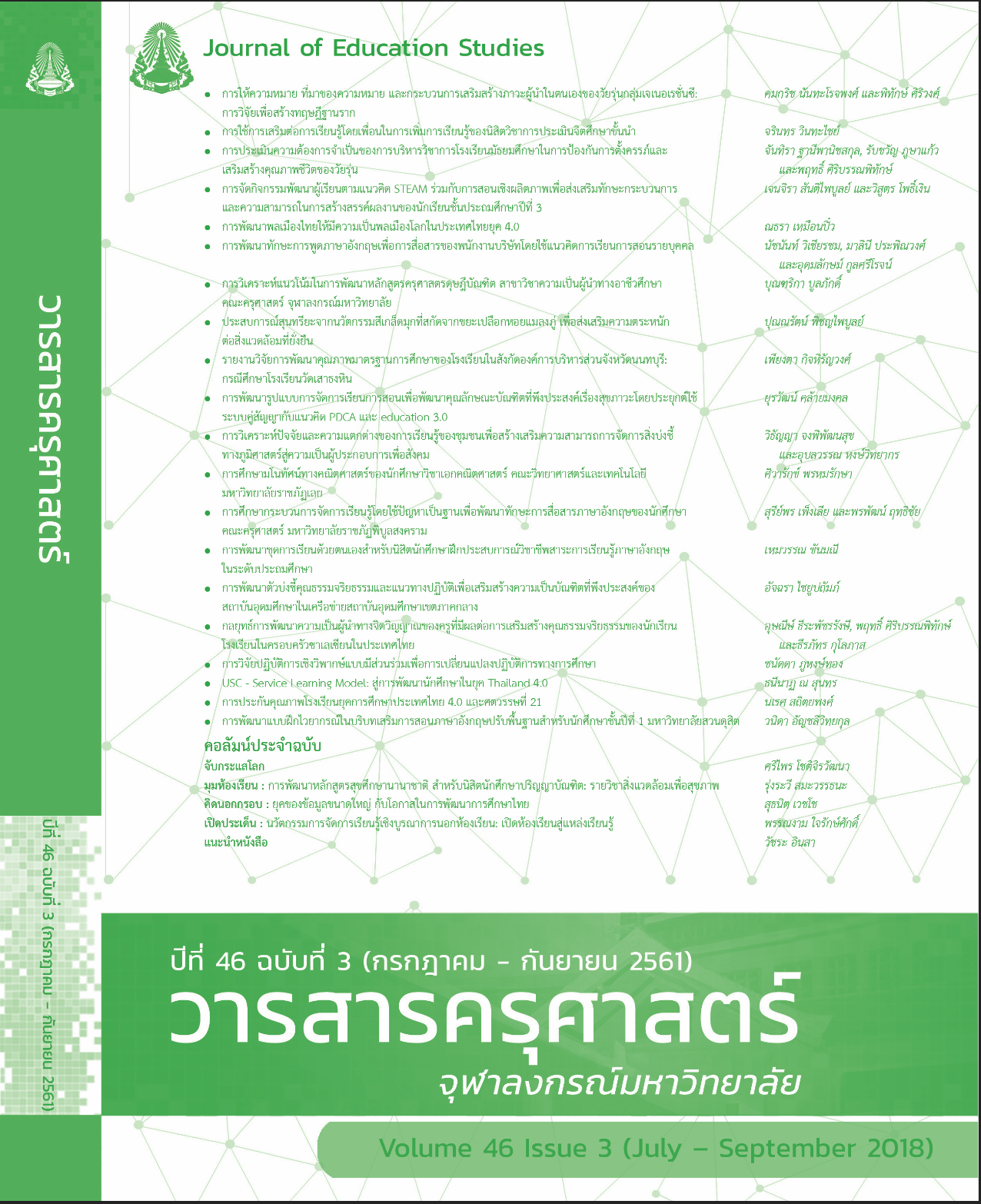การใช้การเสริมต่อการเรียนรู้โดยเพื่อนในการเพิ่มการเรียนรู้ของนิสิตวิชาการประเมินจิตศึกษาขั้นนำ
Keywords:
PEER SCAFFOLDING, ACADEMIC ACHIEVEMENTAbstract
Abstract
The purpose of this classroom research was to investigate student’s learning achievement using peer scaffolding in the Psychoeducational Assessment subject. The participants were 16 students who enrolled in this subject in the second semester of the 2014 academic year at faculty of Education, Chulalongkorn University in Bangkok, Thailand.
Eight capable students were assigned to work with eight students in need of help based on their pretest scores and classmates’ preferences. Both the capable student and the student helped prepare progress reports for the analysis. The instruments used for data gathering were the program of peer scaffolding activity, the examinations to evaluate the foundation of psychological assessment used as the pretest and posttest, the scaffolding behaviors and satisfaction questionnaires, and the peer scaffolding and satisfaction questionnaires used in the interviews. The statistics used for the data analyses were mean, standard deviation, and paired t-tests.
The results of study were as follows: 1) all students obtained more than 70% which is the passing mark, 2) the students’ posttest average score was higher (Mean = 21, SD = 3.43) than pretest scores (Mean = 14.69 , SD = 2.82) at significant level .01 (t = 6.84, df =15, Effect size = 2.02), 3) scaffolding behaviors (Mean = 3.25, SD=.44) and students’ satisfaction with learning method (Mean = 3.44, SD=.89) were at moderate level, 4) all students preferred exercises, making notes, and tutoring, 5) the students preferred to be paired with their close friends with similar study majors, and they also preferred more frequent progress reports.




